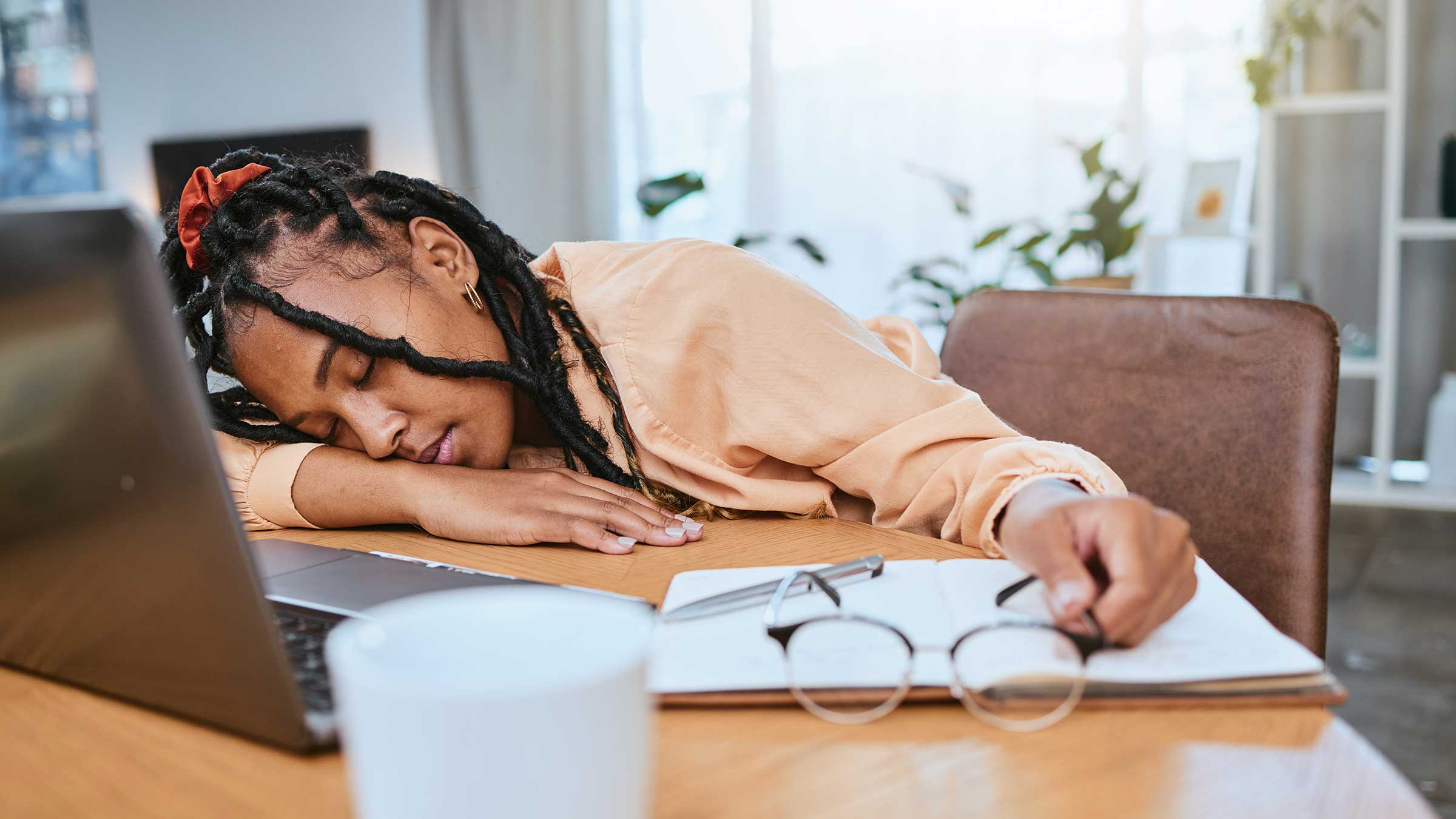
The signs aren’t hard to miss: brain fog, a lack of concentration and severe fatigue.
In our busy world, many of us are caught in a relentless cycle of exhaustion and restless nights.
What if we could break free from this chronic fatigue just by resetting our internal clocks?
Those who are chronically exhausted often seek help from sleep psychologists like me after trying what seems like everything, whether that’s listening to calming sounds like rain, going to bed really late, setting multiple alarms on their phone or using different medications. Patients are often referred by their sleep medicine providers, neurologists or mental health professionals.
What is chronic exhaustion?
Chronic exhaustion is known for the persistent fatigue often marked by severe sleep complaints, such as short sleep, fragmented sleep (when we wake up many times during the night) and restless sleep.
Many patients have already been diagnosed with chronic insomnia. Most have at least one of three conditions: chronic fatigue syndrome, fibromyalgia or depression.
They learn to function on very little sleep — four to five hours on an average night — or they complain of sleeping for a long time without feeling rested afterward.
If left untreated, those patients’ quality of life deteriorates.
In the most extreme cases, they end up bedridden.
Strengthening circadian rhythm signals
Circadian rhythm is your body’s internal clock that regulates almost every process in your body, including the sleep-wake cycle, body temperature, blood pressure and hormones.
When your body’s rhythm is out of sync with environmental demands (job, lifestyle, travel), it can send you spiraling.
Here are some tips to help you sleep better and get your energy back:
- Set a regular wake-up time. Keeping the same wake-up time can strengthen the internal signals of the circadian rhythm. This helps the brain and body recognize when to slow down and speed up throughout the day.
- See the sun each morning. Something as simple as exposing yourself to light in the morning is the most powerful way to influence (or train) your circadian rhythm. You can do this by opening blinds or turning on lights as part of your morning routine to help signal the brain that it’s time to wake up.
- Drink coffee or tea, if it helps you. Caffeine can be helpful during the first part of the day to help you stay alert. It can help maintain alertness and support the circadian rhythm.
- Take short naps. If you need a nap, keep it short and try to nap before 3 p.m. to avoid disrupting your sleep-wake cycle.
Using behavioral therapy interventions to improve sleep
Cognitive-behavioral therapy is the first line of defense in treating insomnia, even before trying sleep medicines. You can work with a psychologist on changing your behavior for better rest.
During treatment (4-10 sessions), you’ll be encouraged to:
- Learn about the sleep-wake cycle. If you understand the sleep-wake cycle, then you’ll see why certain strategies work.
- Work with your psychologist on sleep strategies. Instead of giving broad recommendations, psychologists collaborate with patients to create personalized sleep plans. This ensures that the strategies fit that person’s lifestyle. It's not about judging your choices but finding ways to get back on track to synchronize your internal clock with your lifestyle.
- Adjust your sleep schedule gradually. Changes to the circadian rhythm should be made slowly, ideally by 15-minute increments every two weeks. This method helps establish a new routine without major disruption. Pushing by more than 15 minutes at a time can end up being counterproductive.
- Be diligent about keeping a sleep diary. If you’re struggling with sleep, start tracking your sleep patterns, caffeine intake, exercise and medication. This data helps align your behavior with your circadian rhythm and makes your strategies more successful. Don’t just depend on data from your smart watch or wearable device and skip the diary.
- Make adjustments to your routine. The point is not to be rigid about your routine, but to be smarter about it. For example, our body temperature naturally rises in the evening and drops at night, signaling to our circadian clock that we should prepare for sleep. Some people schedule a hot shower or exercise in the late afternoon to raise and then drop their body temperature, helping this process.
- Try audio instead of screentime. We’ve all watched reels on our phone that keep our interest just long enough until the next one starts playing. We keep watching because it holds our interest. Light from smart devices sends a message to the brain that we’re not ready to sleep. I often tell people to switch to audio, put your phone face-down and, instead, listen to what you want to watch.
Who’s most at risk for developing sleep problems and exhaustion?
Without a doubt, the COVID-19 pandemic resulted in an increase in sleep complaints, including insomnia, in both COVID survivors and their caregivers.
The link between longer periods of poor sleep and daytime exhaustion is well established.
Anyone with a newborn baby can attest to it.
There are other categories of people that are at risk of developing a chronic problem.
People who disrupt their internal clock repeatedly include:
- People who use electronics at night
- People working several jobs or working and studying at the same time (“burning the candle at both ends”)
- Shift workers, and especially workers on rotating shifts
If you’re struggling and need help, where do you start?
If you think you need help, start by visiting your primary care provider who can rule out vitamin D, iron deficiencies, anemia or other potential deficiencies and conditions with blood work. Everyone should have a yearly physical exam.
If the results are fine, then consider making an appointment with a sleep medicine provider who might recommend that you undergo a sleep study. If the sleep study rules out certain sleep disorders, such as sleep apnea, you might be referred to a sleep psychologist to develop better sleep strategies.

Help for mental health conditions
Ohio State offers personalized, compassionate care for your mental health concerns.
Learn more




